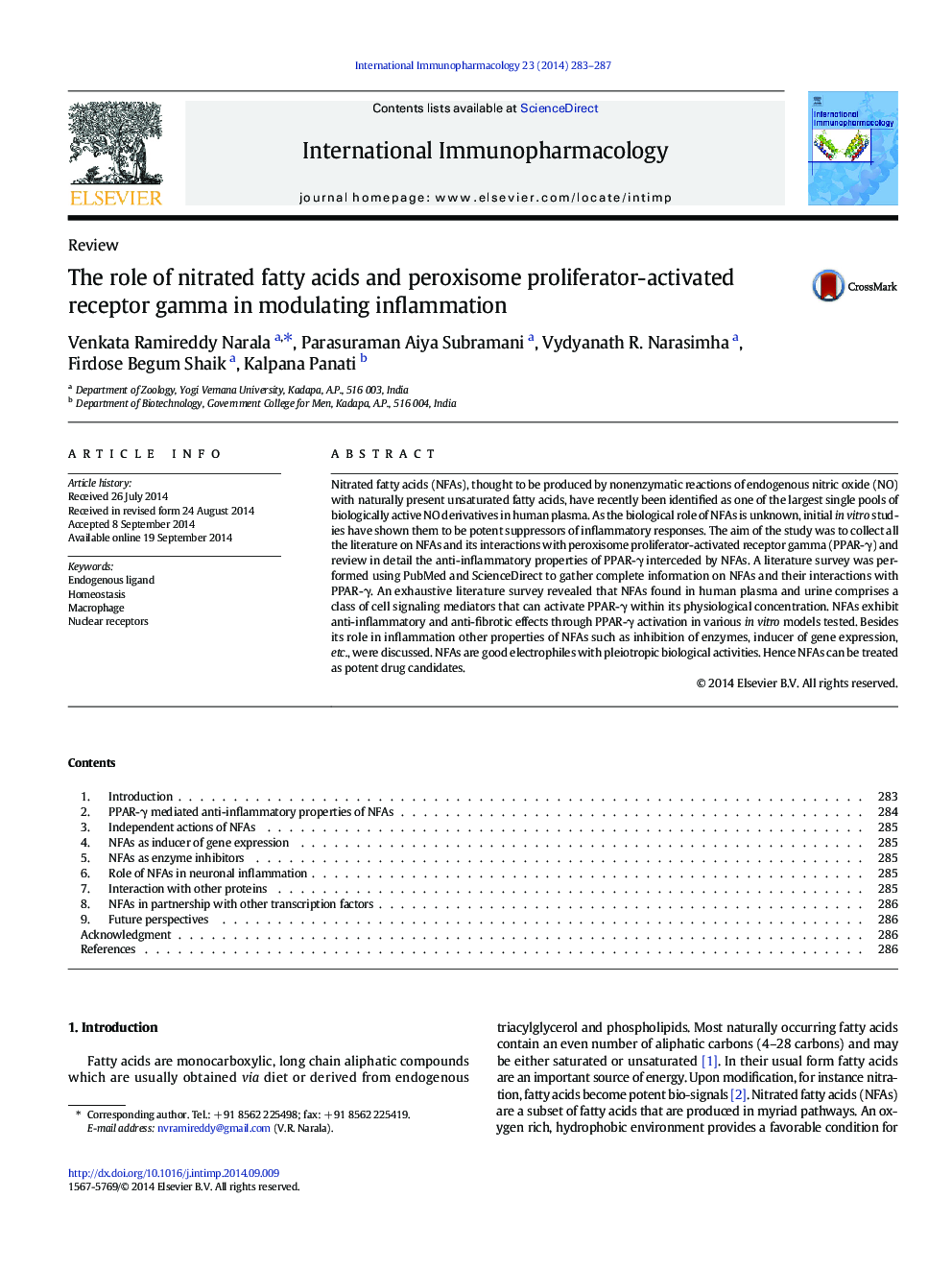| Article ID | Journal | Published Year | Pages | File Type |
|---|---|---|---|---|
| 2540716 | International Immunopharmacology | 2014 | 5 Pages |
•Nitrated fatty acids (NFAs) are potent anti-inflammatory agents.•NFAs act by electrophilic attack of Cys residues of most inflammatory proteins.•NFAs may be the only physiologically relevant endogenous ligands that activate PPAR-γ•PPAR-γ suppresses inflammation upon NFAs binding.
Nitrated fatty acids (NFAs), thought to be produced by nonenzymatic reactions of endogenous nitric oxide (NO) with naturally present unsaturated fatty acids, have recently been identified as one of the largest single pools of biologically active NO derivatives in human plasma. As the biological role of NFAs is unknown, initial in vitro studies have shown them to be potent suppressors of inflammatory responses. The aim of the study was to collect all the literature on NFAs and its interactions with peroxisome proliferator-activated receptor gamma (PPAR-γ) and review in detail the anti-inflammatory properties of PPAR-γ interceded by NFAs. A literature survey was performed using PubMed and ScienceDirect to gather complete information on NFAs and their interactions with PPAR-γ. An exhaustive literature survey revealed that NFAs found in human plasma and urine comprises a class of cell signaling mediators that can activate PPAR-γ within its physiological concentration. NFAs exhibit anti-inflammatory and anti-fibrotic effects through PPAR-γ activation in various in vitro models tested. Besides its role in inflammation other properties of NFAs such as inhibition of enzymes, inducer of gene expression, etc., were discussed. NFAs are good electrophiles with pleiotropic biological activities. Hence NFAs can be treated as potent drug candidates.
